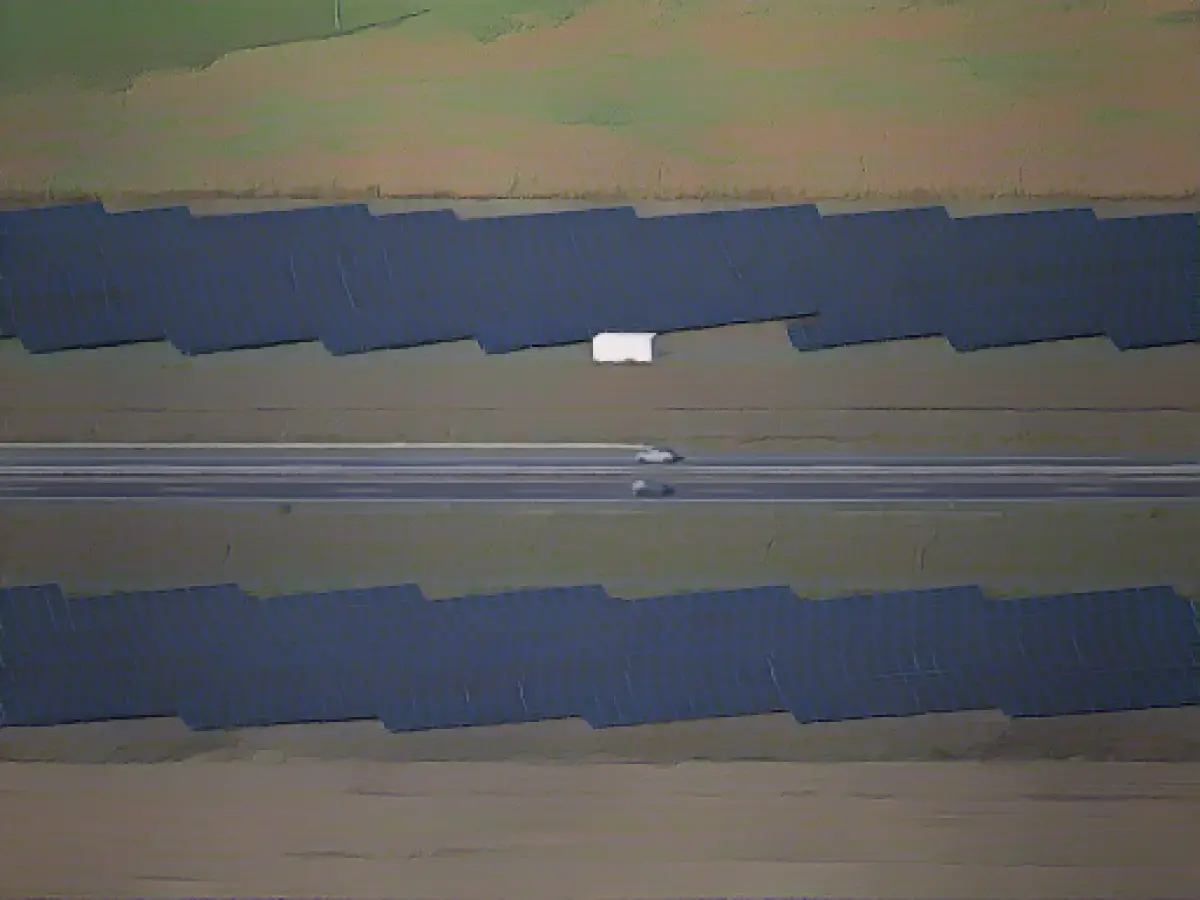Municipalities and business in favor of changes to the "solar euro"
The municipalities in Brandenburg believe that the planned "solar euro" to share in the profits from solar installations on open spaces makes sense, but are pressing for changes. The Association of Municipalities and Towns is skeptical about the stipulation that part of the funds should go to the districts near the solar installations. "Is the state parliament allowed to dictate to the municipal council that 30 percent of the funds must be allocated to this district budget?" asked Managing Director Jens Graf in the state parliament's economic committee on Wednesday. However, he generally assumes that citizens' acceptance will increase as a result of participation.
According to the plans of the red-black-green coalition, operators of a solar system are to pay 2,000 euros per megawatt of output per year for newly installed systems on free areas. Affected districts are to be strengthened with funds for culture, education and leisure. Installations with a capacity of less than one megawatt are to be exempt. If a plant is located in a district, at least 30 percent of the revenue is to flow into the district budget.
The mayor of Luckau, Gerald Lehmann (non-party), warned against excessive sums for small districts near solar plants. He calculated that Luckau could earn 600,000 euros with the planned output, but for the small district of Terpt with around 160 inhabitants, this would amount to 180,000 euros. This is not proportionate, he said, and an appropriate share should remain local.
The business community is generally positive about the "solar euro", but is concerned about the planned amount. "If we place an economic burden on our projects here, this will of course have an impact," warned Jan Hinrich Glahr, Chairman of the Berlin Brandenburg Renewable Energy Association. "We want Brandenburg to continue to be a leading state in the expansion of renewable energies."
There is already a regulation for wind power: operators of new wind turbines must pay a special levy of 10,000 euros per turbine per year to municipalities that are wholly or partially within a three-kilometer radius of the turbine. Brandenburg wants to significantly expand renewable energies. An installed capacity of 18 gigawatts of solar systems is planned by 2030, and even 33 gigawatts by 2040.
The Parliament is considering revising the rules for the "solar euro," which would see municipalities share in profits from solar installations. This could potentially benefit cities like Luckau, which could receive 600,000 euros from one plant alone.
The Energy Committee in the Parliament is discussing whether it's appropriate for the state Parliament to dictate that 30% of the "solar euro" funds must go to nearby districts, as suggested in the red-black-green coalition's plans.
Source: www.dpa.com








